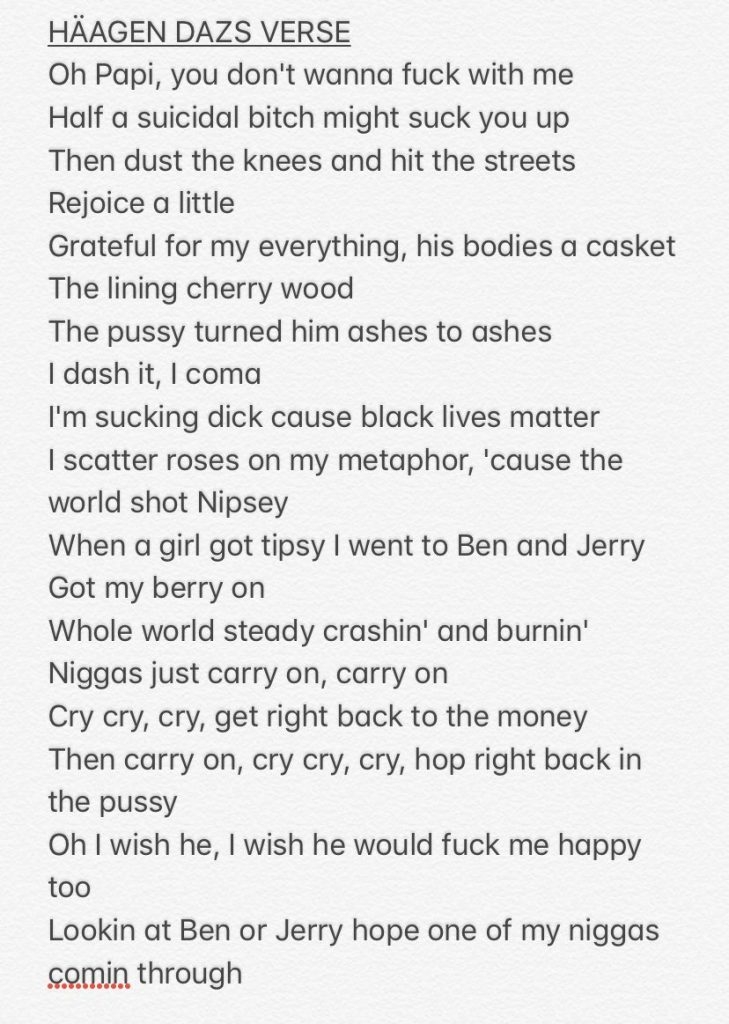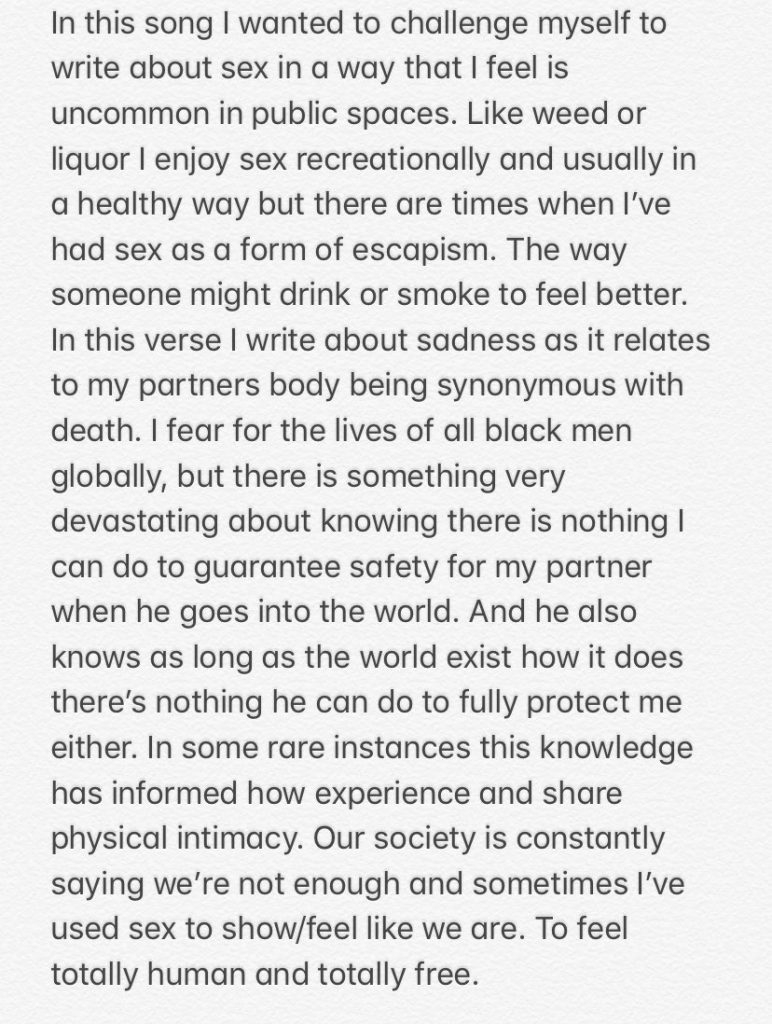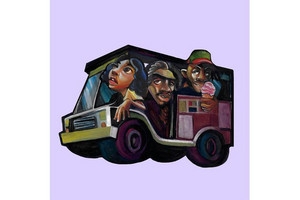ANALYSIS: HÄAGEN DAZS // IN THE WAKE
| by Caleb Green


(My radio show is loosely based around my journey through In the Wake: On Blackness and Being by Christina Sharpe. I am going to try and put that in conversation with Noname on her verse in Ghetto Sage’s new song Häagen Dazs. A lot of this analysis was shared by Noname in a post I will have below.)
I. Basement: Noname does most of the analytical heavy lifting
herself: “In this verse I write about sadness as it related to my partner’s
body being synonymous with death.”
“Grateful for my everything, his bodies a casket
The lining cherry wood
That pussy turned him ashes to ashes”
For context, Noname is talking about a lover, and pretty plainly
making him the image of American version of death, a casket. Sharpe opens her
book by talking about her distant family, specifically a young black man, for
me eerily but unsurprisingly named Caleb (see: interchangeability, when does
the word ‘body’ apply instead of person, family?) who was killed at the age of
20 by gun violence. She writes “Caleb’s life was singular and difficult, and it
was also not dissimilar to the lives many young Black people living in, and produced
by, the contemporary conditions of Black life as it is lived near death, as
deathliness, in the wake of slavery” (my emphasis).
Cool. The layer underneath the arguments of Sharpe’s book, in
Noname’s verse. Blackness is inherently linked to death. Easy.
II. Cosntruction: Noname goes on in her explanation to talk
about the unique pain of knowing that there is nothing she can do to keep her
lover safe, and that he know the same of her. She says, “In some rare instances
this knowledge has informed [our] experience and share physical intimacy.” The
verse is about when sex is a form of escapism, in the way that drugs can alcohol
can be.
“Whole world steady crashing and burning
Niggas just carry on, carry on
Cry, cry, cry, get right back to the money
Then carry on, cry, cry, cry hop right back in the pussy”
But she makes clear that these moments of escape are healing
for her. In her explanation she writes: “Our society is constantly saying we’re
not enough and sometimes I’ve used sex to show/feel like we are . To feel totally
human and totally free.” And in the song she says shortly “Oh I wish he, I wish
he would fuck me happy too.” I would describe all that by saying that Noname is
writing about particular sexual experiences where some understanding of her relationship
to death (because she, like we* all, experiences life within death already) created
space for a different kind of care and pleasure, both given and received, that
not only offered an escape but some kind of healing/connection.
Sharpe wants “to propose that to be in the wake is to
occupy and to be occupied by the continuous and changing present of slavery’s
as yet resolved unfolding.” Slavery’s continuous unfolding for her is a life with
death, as if one is already dead. She is asking what if we know we are here? What
if everything we do comes from this place, the acknowledgement of this place? Specifically,
what do thinking and care look like? This project, of imagining care and thinking
from this unfolding is what she calls wake work. About it she says “I am
trying to find the language for this work…I am trying to find the words that
will articulate care and the words to think what Keguro Macharia calls those ‘we
formations.’ I am trying to think how to perform the labour of them.”
III. Conversation: What if what Noname is describing is wake
work. Two people sharing care (specifically in a sexual way). Two people who were
a we*. What Noname describes as the specific feeling of knowing you cannot keep
your loved one safe if you tried (see: powerlessness, frustration, anger, fear),
and that understanding being reflected back to her, feels like being in the wake.
And the care/love/intimacy that came from the wake is the escape from
her position in the wake and feel “totally human and totally free.” And in this
instance, that was about sexual pleasure/intimacy but care can take many forms:
platonic, romantic, sexual, familial, communal, with messy combinations making
infinite shapes for care. And beneath what Noname and Sharpe are both talking
about is an awareness of the wake, and a moving within.
IV. Lighthouse: In In The Wake, Sharpe says “[This
book] is a work that insists and performs that thinking needs care, and that
thinking and care need to stay in the wake.” I think that is what Noname is
describing here. What if these moments that Noname described were always? Sharpe
writes: “What does it mean to defend the dead? To tend to the Black dead and
dying…always living in the push towards or death? It means work: Hard emotional,
physical and intellectual work that demands vigilant attendance to the needs of
the dying, to ease their way, and also the needs of the living.” Wake work is
always. Wake work is how we* don’t let each other go without. It is constant.
But it also looks like Noname raps, just: “Oh I wish he, oh I wish he would fuck
me happy too.”
This is now a Ghetto Sage radio station.
”,”type”:”rich”,”providerNameSlug”:”spotify”,”className”:”wp-embed-aspect-9-16 wp-has-aspect-ratio”} —>





